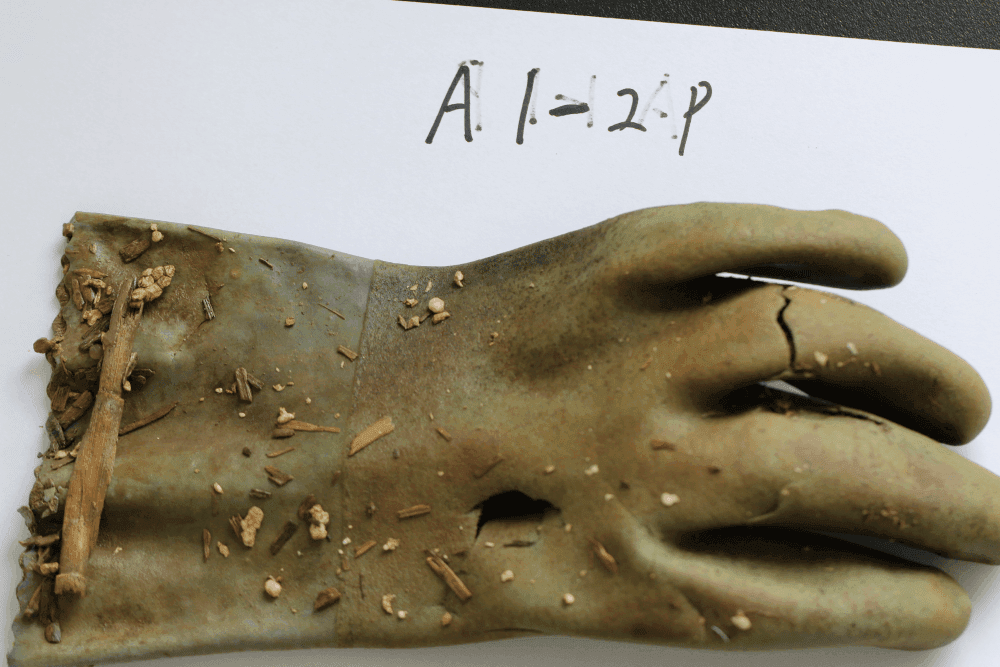Fungi found feeding on plastics have given researchers fresh hope that we may one day be able to clean up the new habitats humans have made on Earth by leaving anthropogenic trash laying around. These “plastispheres” have been recognized as a habitat for marine organisms, but new research looking at these unique ecological niches on land has discovered that fungi aren’t just living among trash, they’re also eating it.
Plastispheres have only been recently recognized as unique ecological niches. While undoubtedly a scourge on the natural environment, wild species are notoriously good at making a home for themselves just about anywhere, and islands or mountains made of human trash are no exception.
Research has already discovered that species usually found in coastal environments are now living it up in places like the Great Pacific Garbage Patch. This is because floating rafts of plastic are carrying them to places they couldn’t usually reach while also providing stable enough shelter for life to grow. Diverse groups of bacteria, fungi, and animals have all been found to colonize and interact with plastic habitats.
Researchers at the Royal Botanic Gardens, Kew (UK) and partners looked for plastisphere insights in plastic waste samples from the Dafeng coastal salt marshes in Jiangsu, China, a UNESCO-protected site near the Yellow Sea Coast. Here they discovered 55 types of bacteria and 184 types of fungi capable of breaking down a specific type of plastic called polycaprolactone (PCL). Among them were the bacteria Jonesia and Streptomyces, which proved to be skilled at breaking down several types of petroleum-derived polymers.

Terrestrial plastispheres found along the salt marshes included plastic gloves, shoes, and bottles.
Image credit: Feng Cai and Irina Druzhinina
Surveying the marshes showed that plastispheres don’t need specific types of plastic in the environment to exist, meaning there could be bacteria and fungi munching on rock-hard plastics at a trash site near you. While these plastic eaters aren’t always too choosy about substrate, environmental factors like carbon content and pH can influence the specific species of fungi and bacteria that move in.
The habitats sampled are therefore classed as terrestrial plastispheres, a relatively new term as most research into these ecological niches has focused on marine environments. They even have unique microbiomes compared to the surrounding soil.
Studying plastisphere communities is a hot topic of research because scientists want to learn how these microorganisms can degrade and breakdown the plastic they’re living on. If we can learn from them, then it may provide us with the knowledge and tools to finally get rid of the super-strong plastics we made that now litter the entire planet. What’s more, it could teach us how to make more sustainable materials in future by innovating a type of hardy, versatile plastic that can be broken down more easily.
In a statement emailed to IFLScience, Kew shared that according to the United Nations Environment Programme, 400 million tonnes of plastic waste is produced annually. It’s a harrowing statistic, but one researchers hope the plastisphere may one day help us tackle.
“Microbiologists across the board feel responsible for finding solutions to the ecologically friendly treatment of plastic waste because bacteria and fungi will be the first organisms to learn how to deal with this new material,” said Dr Irina Druzhinina, Senior Research Leader in Fungal Diversity and Systematics at RBG Kew.
“We have no doubt that microbes will figure out ways to effectively degrade plastic, but this may take thousands of years if we leave nature to run its course. That is why our task is to utilise the knowledge we already possess of microbial biology, to speed up and direct the evolution of microbes and their individual genes to do the job now.”
The study is published in the Journal Of Hazardous Materials.
Source Link: Fungi Eating Plastic In Habitats Made Of Trash Could Help Us Clean The Planet